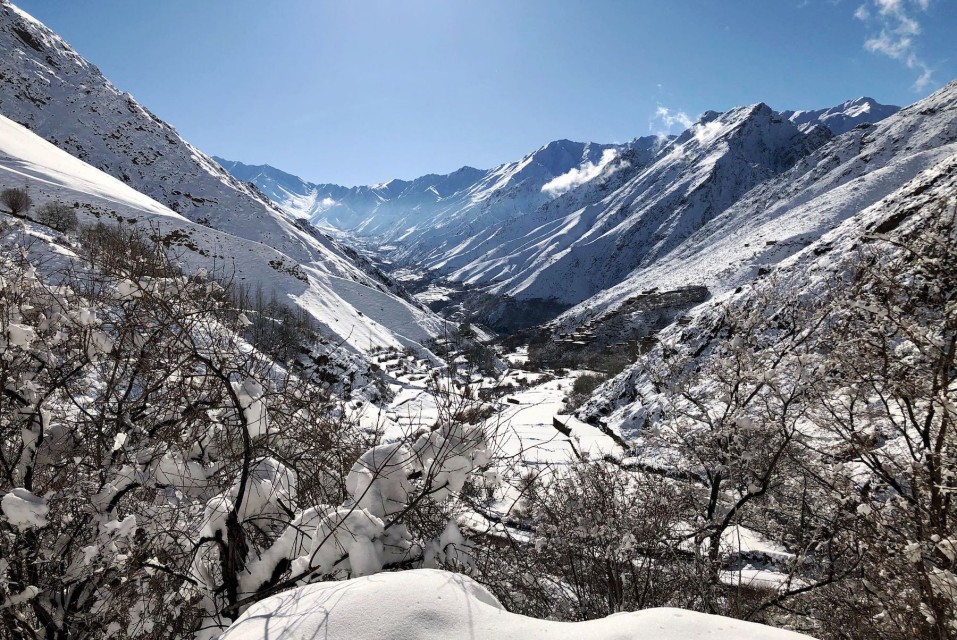
KABUL, Feb 19, 2024 (AFP) – A landslide caused by heavy snowfall has killed 25 people and injured eight others in the eastern Afghan province of Nuristan, a disaster management ministry spokesman said on Monday.
Earth, snow and rubble swept through the village of Nakre in the Tatin valley of Nuristan overnight on Sunday.
“As a result of the landslide, some 25 people have been killed and eight injured,” spokesman Janan Sayeq said in a video clip shared with media.
Sayeq also told AFP the death toll could rise.
Nuristan province, which borders Pakistan, is mostly covered by mountainous forests and hugs the southern end of the Hindu Kush mountain range.
Provincial officials said snow has also hampered rescue efforts.
“Due to clouds and rain, the helicopter cannot land in Nuristan,” said Mohammad Nabi Adel, the head of public works in the province.
Adel said snow had blocked one of the main roads into the province, making “the rescue operation difficult”.
Around 20 houses were destroyed or heavily damaged, the provincial head of information and culture Jamiullah Hashimi told AFP.
Snow continued to fall as rescuers tried to dig people out of the rubble, Hashimi said, noting that the efforts were hampered not only by weather but lack of equipment in the remote area.
“Modern equipment, tools, and facilities are not available for the rescue operation,” he said.
Rescuers relied on shovels, axes and other hand tools to dig through the earth and rubble to retrieve the dead.
Large boulders also fell in the landslide and had to be blasted with explosives to make way for the rescuers.
Afghanistan is one of the world’s poorest countries, racked by decades of war, prone to natural disasters and vulnerable to extreme weather events linked to climate change.
– Soil erosion risks –
Mountainous areas of Afghanistan have long been prey to landslides and floods, but in recent years risks have increased due to deforestation and drought, worsened by climate change, experts say.
“When vegetation cover or the forests are cut down, or if green coverage doesn’t exist in the area, soil erosion occurs,” said Rohullah Amin, head of climate change for the National Environmental Protection Agency (NEPA).
“With soil erosion, when it rains or snows and the vegetation cover… doesn’t exist anymore it causes such landslides.”
The arrival of snow this season was delayed across much of Afghanistan, which is accustomed to harsh winters but in its third year of drought.
Officials said there has been less snowfall in Nuristan compared to previous years, though Amin said the province was not less hard-hit by drought than other parts of the country.
“This year we had little snow and it doesn’t last for long,” said Adel.
The exceptionally low level of rain in a country that relies heavily on agriculture forced many farmers to delay planting.
The South Asian country was once flush with humanitarian aid following the US-led occupation but funding to Afghanistan has plummeted since the Taliban returned to power in mid-2021, in part because of the many restrictions it imposed on women.







